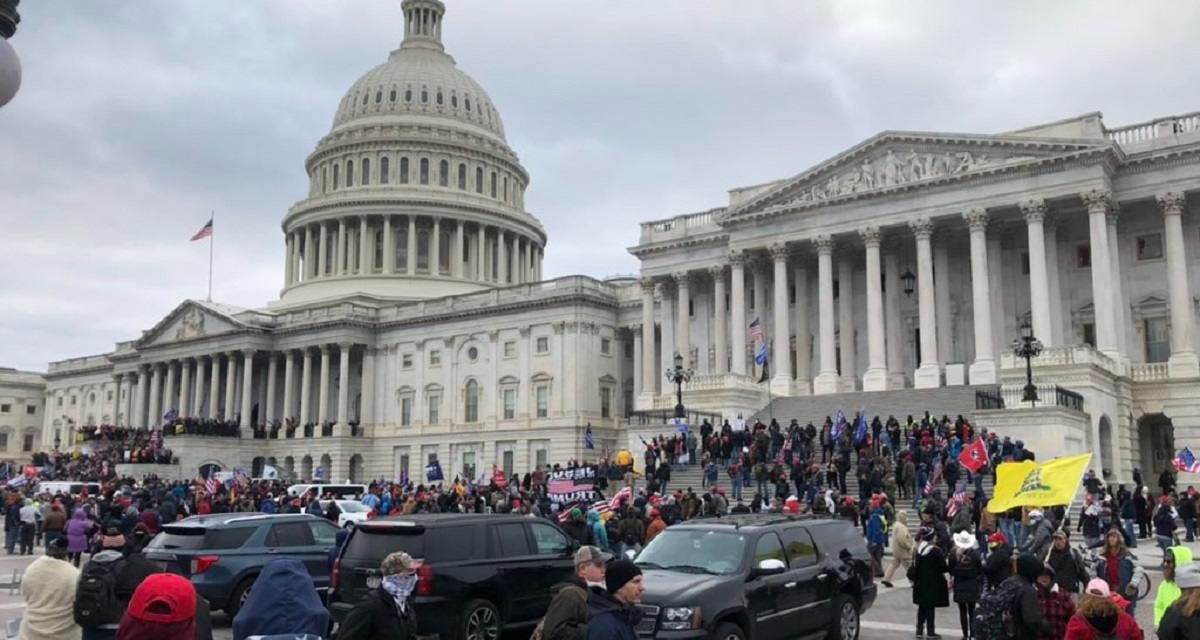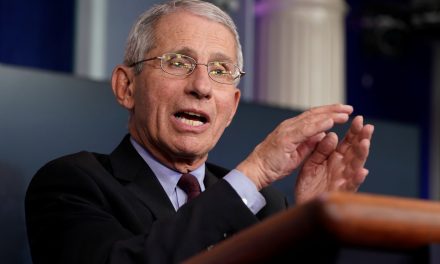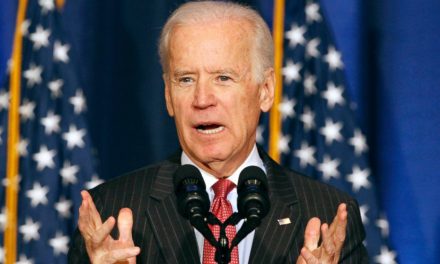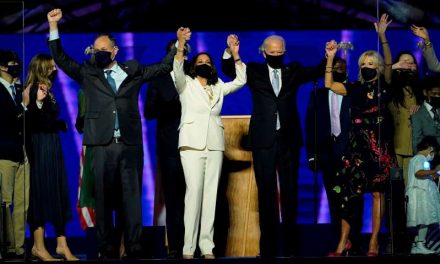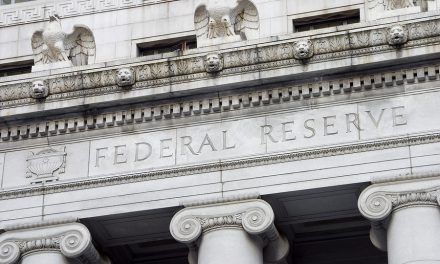The U.S. Capitol and surrounding area has been transformed into a military zone ahead of President-elect Joe Biden’s inaugurations, as police step up security after a pro-Trump mob overwhelming police to storm the building.
Seven-foot barriers have been staged around the Capitol, its office buildings, and the Supreme Court.
National Guard troops will number as much as 25,000, and many of them will be armed. Troops have been photographed sleeping in nearly every corner of the Capitol — an Inauguration preparation not seen since President Lincoln was set to take office amid the Civil War.
It’s like little that has been seen before in U.S. history.
“At a time when we need a celebration as best can be had under COVID; at a time when we need to unify; at time when we need to say to the world ‘We are a beacon of democracy and a shining city on a hill,’ our own hill, Capitol Hill is an armed fortress,” said Barbara Perry, director of presidential studies at the University of Virginia’s Miller Center.
“It’s not like we haven’t faced anything like this, but we haven’t faced anything like this in the modern age, even since 9/11.”
The Secret Service is coordinating the largest security presence in D.C. history, not just because of the attack, but because of the possibility of more mayhem. FBI Director Christopher Wray has noted “an extensive amount of concerning online chatter” ahead of the event.
Matthew Miller, the special agent in charge of the Secret Service Washington Field Office, said the increased manpower is a direct result of those threats.
“There’s a great deal of very concerning chatter, and it’s what you don’t know that we’re preparing for. So I don’t know if anyone has raised their hand to say, ‘We are coming. We will be there.’ But we are preparing as if they are,” he said in a press conference Friday with D.C. Mayor Muriel Bowser.
Downtown Washington, D.C., has been overrun by barricades, roadblocks, fences and armored trucks. The metro system is closing 13 stations in the areas surrounding the National Mall.
U.S. Marshals will deputize as many as 4,000 officers from across the country who will come to the capital to aid D.C. police.
Suzanne Spaulding with the Center for Strategic and International Studies said the sheer number of officers on the ground acts as a deterrent.
“You want to send the unmistakable signal that anyone who may be able to get away with something will not exceed. It’s much better to change their mind and alter their decision calculus so they don’t attempt something you don’t have a 100 percent chance of stopping,” she said.
In another unprecedented move, the Park Service has closed off the majority of the National Mall, turning a major gathering point for the public into an area largely deserted area.
“We’re not asking people to come to D.C. for this is a major security threat, and we are working to mitigate those threats,” Washington, D.C., Police Chief Robert Contee said last week.
The security measures have not been limited to the government.
Airbnb shut down its rental service within D.C. in the days surrounding the Inauguration as it found “numerous individuals who are either associated with known hate groups or otherwise involved in the criminal activity at the Capitol Building” were making bookings through the site.
And numerous airlines will not allow passengers heading to Washington, D.C., to check any guns.
Carolyn Gallaher, a professor at American University who studies militia and white supremacy movements, said the preparations show government and business leaders are beginning to take those groups more seriously.
“Police forces have tended to discount and downplay the threat both by militias, far right extremists, white supremacists and white nationalists,” she said.
But she’s also seen a shift in those group’s philosophies as they’ve become more prominent and dangerous.
“What you see is this kind of shift in the militia movement from just being anti-government to just being pro-Trump and his government,” she said.
Despite failing to concede that he lost the election, Trump did issue a statement from the White House asking the public, though not specifically his supporters, to refrain from violence.
“In light of reports of more demonstrations, I urge that there must be no violence, no lawbreaking and no vandalism of any kind. That is not what I stand for, and it is not what America stands for. I call on all Americans to help ease tensions and calm tempers. Thank you,” he said in the Wednesday video, which was released hours after the House voted to impeach him.
But Gallaher said even if the inauguration goes off without a hitch, Trump has already disrupted the notion of a peaceful transfer of power.
“A peaceful transfer of power normally happens because the two parties agree to the same rules,” she said, adding that Trump dispelled that by with words inciting an insurrection at the Capitol as lawmakers were set to recognize the victory by Biden.
“It will probably be peaceful, but it will be a defended peace, defended in a way we’ve never had to before,” Gallaher said.
Experts are hopeful the heightened law enforcement presence will dodge many of the same controversies seen over the Black Lives Matter protests during the summer, when, in addition to what many called an outsized and violent response by police, many law enforcement officers refused to identify themselves.
A provision added to the defense policy bill requires officers to identify which law enforcement agency they are with and wear some sort of personal identifier.
But those alarmed by the increased police presence in D.C. were warned not to expect a return to normal overnight.
“I think that we’re going to go back to a new normal,” Bowser said in a Friday press conference.
“I think that our entire country has to deal with how our intelligence apparatus, security apparatus at every level, deal with a very real and present threat to our nation. We saw white extremists storm the Capitol Building who were trained and organized and seemingly with the intent to capture the vice president of the United States and perhaps harm other lawmakers,” she said. “So, we all have to think about a new posture. We certainly have to think about a new posture in the city. So while we are focused on January the 20th, we’re also focused on January the 21st and every day thereafter in the nation’s capital.
The Hill

